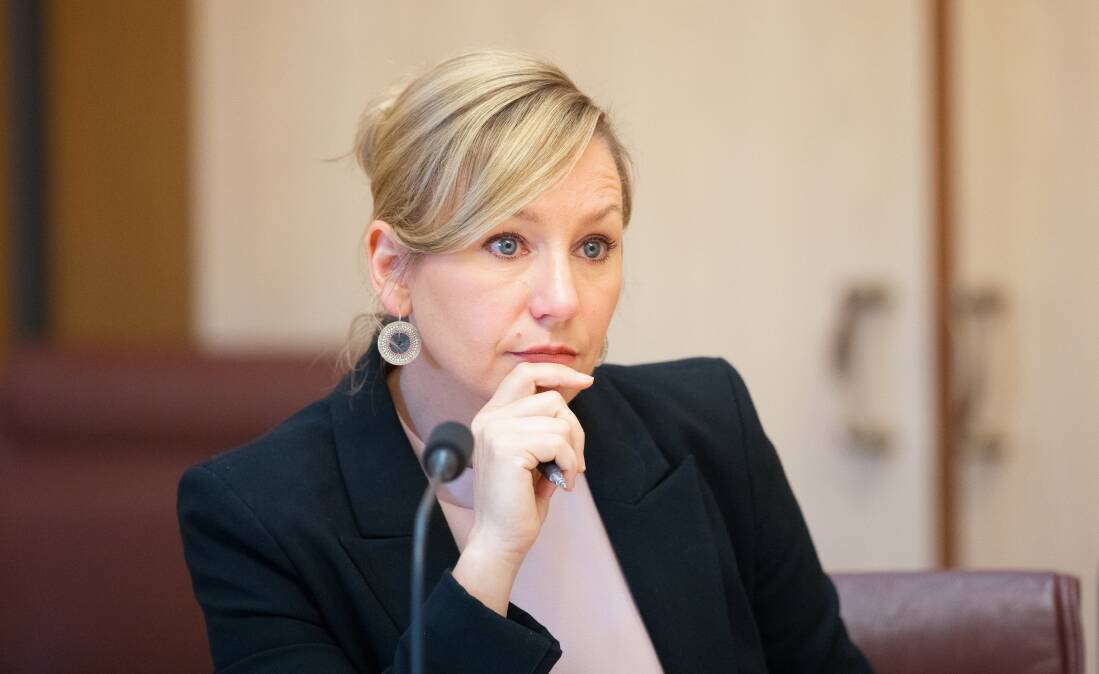
Newcastle students will be barred from rigorous consent training following the shelving of a national program, the Hunter's peak organisation against sexual violence says.
Consent laws across the country were put under the Senate's microscope this week during a nationwide inquiry into sexual violence reforms. Speakers at the inquiry pushed for consistent laws across all states and territories and more rigorous sexual education.
Among organisations who appeared at the inquiry was peak body Universities Australia (UA). Its representatives were grilled by senators on why a $1.5million anti-sexual violence awareness program was shelved.
What Were You Wearing's (WWYW) founder Sarah Williams, who said she was raped on campus, said the awareness program would have helped alleviate pressure on unpaid grassroots organisations.
The campaign, set to be rolled out at all 39 UA universities, was funded by taxpayers under the Coalition government in 2021.
The Saturday Paper reported last week that the program designed by UA had been shelved as a minority of vice-chancellors disagreed with the explicit content proposed.
UA rejected the claim and said the program designed was not rigorous enough to reform student behaviour.
Greens senator Larissa Waters said at a press conference on Tuesday that UA should "give back" their funding if the program was not to roll out.
"Can I just say to Universities Australia: 'What are you doing? Get out of the way. Your students deserve to be safe on campus," Ms Waters said.
"Do the education of give the money back," she said. "The universities have been on notice about [sexual violence] for so many years."
The Department of Social Services, responsible for delivering the funding, did not ask for money back because some of it had already been spend on third-party support for the campaign.
Consent training is currently offered at the University of Newcastle (UON), including a compulsory Consent Matters course at the start of every degree and three-hour respect training sessions.
It also has an action plan for sexual assault, developed in conjunction with the students union, along with two campus care staff who help students with sexual assault cases.
Founder of End Rape On Campus Sharna Bremner said education programs will remain available at UON despite cancellation of the UA course.
"[This does not] prohibit Newcastle, or any other university, from providing students with rigorous, expert-designed and evidence-led relationship and sexuality education programming," Ms Bremner said.
Despite current training on campus, WWYW believes further nationwide sexual assault campaigns would encourage universities to bolster their support for local sexual violence organisations.
"If you start with one area, it is a flow-on impact," Ms Williams said. "I personally do not think UON is doing enough."
Ms Williams said if some of the $1.5 million in federal money given to UA was reallocated to grass roots organisations, it could be used to implement better training specific to each university.
Ms Williams, a student, volunteers about 20 hours of her time each week to consent training and other WWYW work. She does not have a paid job as a result.
A survivor advocacy group was established last year. Students who have survived sexual assault on campus meet with management to discuss reforms.
UON is the "only university" with a WWYW were a key player in developing this but Ms Williams said it would not have been possible without hundreds of volunteer hours. Federal funding like that handed down to UA may have a role to play.
"I am confident if [volunteer organisations] had money like this, we would see far less rape and sexual assault in universities," she said.
A spokesperson from UON said the university believes "students have a crucial role to play in informing our initiatives.
"While the community and our university have made progress, we know there is more to do. The university's Safer Communities Advisory Group is committed to ongoing review of the university's relevant policies, procedures and initiatives."
Most consent laws are governed at a state level. Federal education minister Jason Clare said implementation in universities and schools would be discussed at the next National Cabinet meeting.







